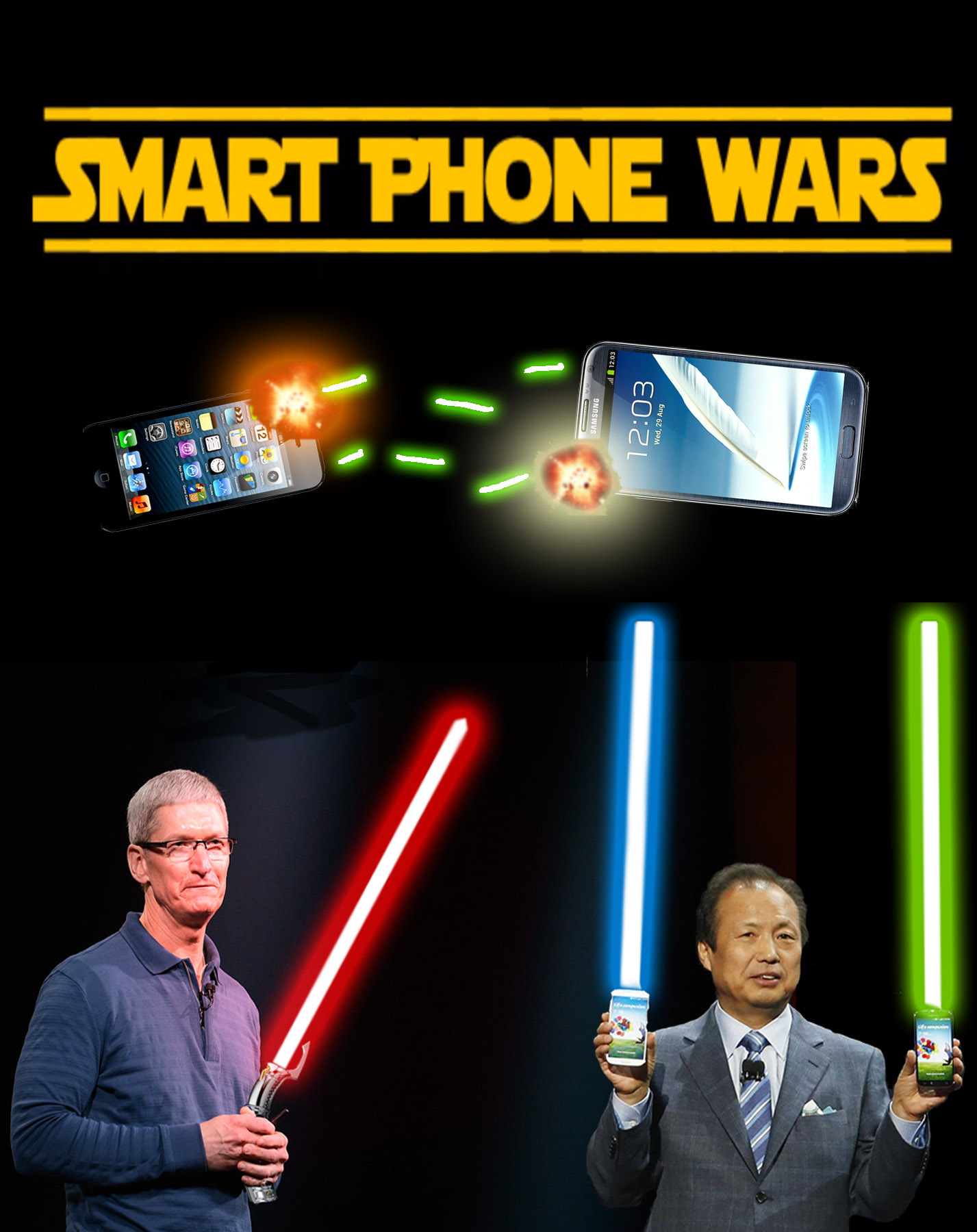 Today, we’ll take a short break from talking about patent trolls, and revisit another ongoing story in the patent world: the SmartPhone Patent Wars.
Today, we’ll take a short break from talking about patent trolls, and revisit another ongoing story in the patent world: the SmartPhone Patent Wars.
Here’s a short video introduction (looks best in full screen):
Samsung recently won a round of the Smart Phone Wars at the International Trade Commission. It’s interesting that not only did the Commission’s determination include an order excluding older Apple iPhone models from being imported, it also issued a cease and desist order to stop Apple from selling its existing stock in the U.S. It’s unusual for the ITCInternational Trade Commission to do that, although it’s not unheard of.
Oh, and last week Samsung lost a patent infringement case to Apple in Japan, and this week Samsung won an appeal in Japan upholding a finding of no infringement on a different patent. A few weeks ago, Samsung won in the Netherlands, where the court found it didn’t infringe one of Apple’s Dutch patents. And so it goes.
There are at least two larger points to this. First, this is a colossal waste of resources. According to news reports, Apple started this fight with Samsung based on a personal vendetta, not for business reasons. Both sides have spent millions and millions of dollars in legal fees and costs, and they have nothing to show for it. On the other hand, there are a number of lawyers who are a bit richer, which is good news for the legal economy.
But what do consumers get from this? Nothing that I can see.
The second point is less obvious: this dispute shows just how little use patents have in the software industry, and as a result, why privateering is growing as a problem.
The software industry moves orders of magnitude faster than the patent system or the judicial system. A typical patent will take around 3 years to issue. Software patents often take longer (look at the statistics for Tech Center 2100). So if you’ve applied for a patent on a feature of a software-based product, your competitors have already had time to go to market with their own versions of your feature long before the patent issues. And if you sue on the patent, the case could take several years to resolve. That’s another product cycle or two, and plenty of time to design around most software patents.
By the time a case is over, the device being accused has been replaced by something new. And neither company has a hard time modifying its products to get around the other side’s patents.
That means that the patent can’t serve its purpose of “clearing the field” and raising the barriers to entry. In the software industry, except for standards essential patents (SEPs) (which are a separate topic), patents just don’t do much for companies in the software industry beyond the ability to drain their competitors’ resources.
This helps explain why privateering has grown as a trend. If, as I’m suggesting, software patents are mainly valuable for raising your competitors’ costs, there’s no point in doing the dirty work yourself and drawing fire. Outsource the lawsuits and get the benefit without wasting your own resources.
By spending so much money and taking so much criticism for so little benefit, Apple has shown the benefits of privateering to the rest of the industry.
And that is definitely not good for the rest of us.
To be continued…
